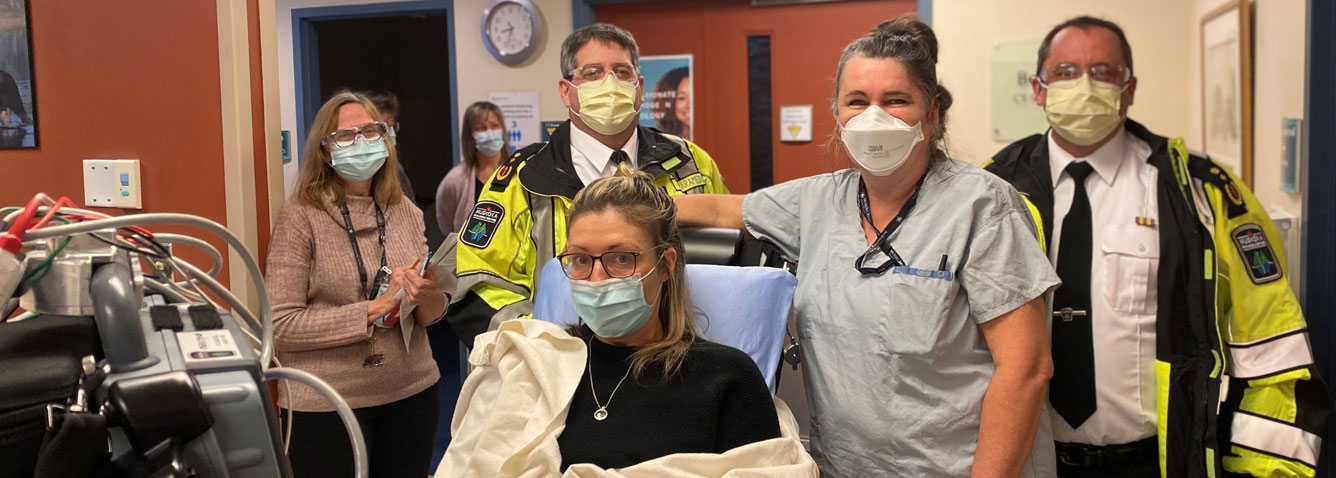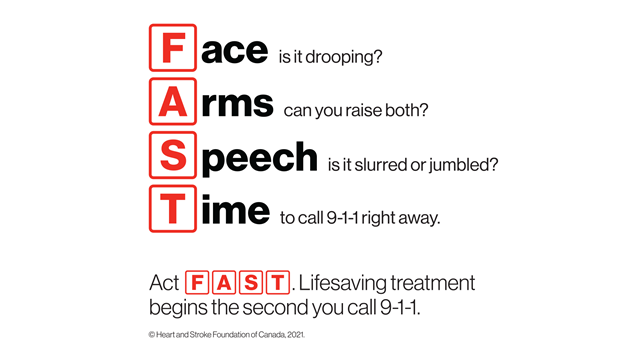Improvements Mean Better Access to Latest Stroke Treatments

Thanks to advancements in stroke care processes and strong partnerships with key partners, patients across the region now have better access to EVT (endovascular thrombectomy) screening at both hospital sites through formal pathways.
EVT is the newest standard of care for ischemic stroke where highly-specialized stroke care teams can thread a guidewire and mechanically remove the clot from the brain in appropriate patients. For patients presenting within four to 24 hours of stroke symptom onset, EVT therapy has impressive outcomes and increases the window of time to provide stroke treatment to 24 hours from symptom onset.
In Muskoka, the stroke centre is regionally designated in Huntsville at MAHC’s Huntsville District Memorial Hospital (HDMH) Site. For the past two years, the Central East Stroke Network has been working to develop a process for non-tPA hospitals to enhance stroke care within facilities that are not designated stroke centres, like MAHC’s South Muskoka Memorial Hospital (SMMH) Site.
“Traditionally, through formal acute stroke protocol services, stroke patients are taken directly to a District Stroke Centre where they are screened and may be found to be a candidate to receive the tPA clot-busting drug or EVT therapy,” explains Chief of Staff Dr. Khaled Abdel-Razek. “Teams at both hospital sites have been working within regional and cross-regional teams to launch a new protocol that ensures patients throughout Muskoka have seamless timely screening and access to EVT therapy.”
This means patients presenting to either of MAHC’s hospital sites within four to 24 hours of stroke symptom onset can access EVT screening, which for some patients may lead to swift EVT therapy at Toronto Stroke Network facilities in the GTA.
“The ability for the SMMH Site to access EVT consultation as a non-tPA hospital within the Central East Stroke Network is a huge step in improving stroke care in the communities we serve, providing better access to the latest stroke treatments,” adds Dr. Abdel-Razek. "We gratefully recognize all the hard work by our Emergency Dept. and Diagnostic Imaging teams in collaboration with our local EMS paramedics for their outstanding work to improve patient access to care.”
A stroke happens when blood stops flowing to any part of your brain, damaging brain cells. The effects of a stroke depend on the part of the brain that was damaged and the amount of damage done. Between 2017 and 2020, an average of 178 stroke cases have been treated at MAHC each year.

“Always remember the ‘FAST’ signs are the most common signs of stroke and they are signs that are more likely to be caused by stroke than any other condition,” says Dr. Abdel-Razek. “These symptoms include vision changes (blurred or double vision), sudden severe headache (usually accompanied by some of the other signs), numbness (usually on one side of the body), and problems with balance. Stroke is a medical emergency and time is brain. If you experience any of these signs, do not drive to the hospital; always call 9-1-1 and an ambulance will get you to the best hospital for stroke care. Time is brain and lifesaving treatment begins the second you call 9-1-1.”
Valuable stroke information is available at www.heartandstroke.ca.
Contact Us
Huntsville District Memorial Hospital Site
100 Frank Miller Drive, Huntsville, ON P1H 1H7
Phone: 705-789-2311
Fax: 705-789-0557 (administration)
South Muskoka Memorial Hospital Site
75 Ann Street, Bracebridge, ON P1L 2E4
Phone: 705-645-4404
Fax: 705-645-4594 (administration)
Sign up to our Muskoka Health Matters Newsletter
Stay up to date on the hospital’s programs and services, events, and other announcements by subscribing to our eNewsletters.
